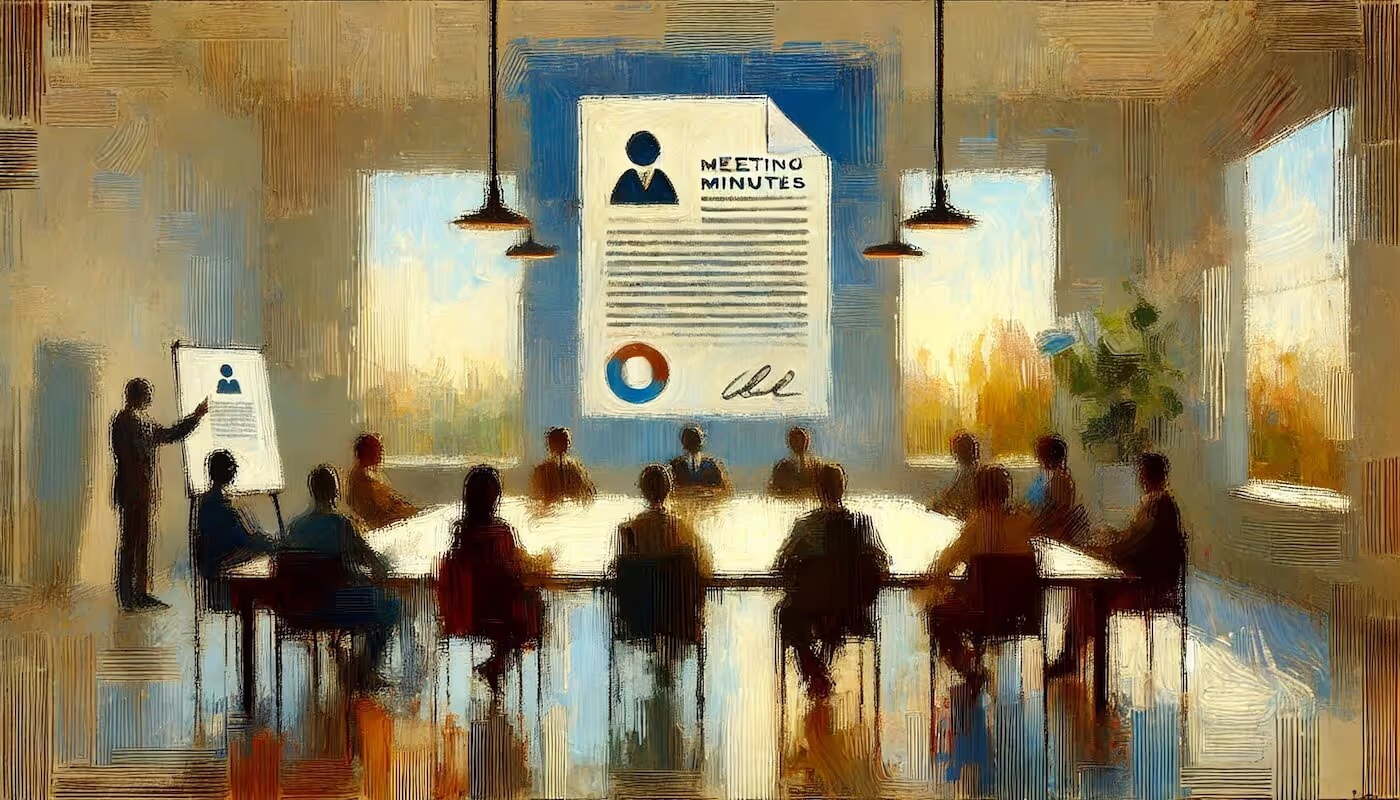
Mastering Interpersonal Skills in Teamwork: Your Pathway to Better Collaboration
Boost your team's synergy! Uncover the secrets to mastering interpersonal skills and discover the key to better collaboration. Successful teamwork begins and ends with communication, so start optimising your skills today.
In the modern dynamic work environment, mastering interpersonal skills is essential for anyone looking to thrive in their career. Interpersonal skills, often referred to as "soft skills," complement hard skills and play a pivotal role in fostering effective communication, teamwork, and overall success in the workplace. Whether you are a recent graduate or a seasoned professional, improving your interpersonal skills can help you become a better team player and excel in your career.
What Are Interpersonal Skills?
Before diving into the specifics, let's begin by defining interpersonal skills. Interpersonal skills, sometimes simply called "people skills," encompass a range of abilities that allow individuals to interact and communicate effectively with others in various personal and professional settings. These skills include verbal and non-verbal communication, active listening, assertiveness, empathy, and emotional intelligence.
In this article, we will explore five essential interpersonal skills, providing examples and reasons why they are powerful and beneficial for teamwork. Let's delve into these skills and discover how they can enhance your ability to collaborate effectively in both a synchronous, and asynchronous workplace.
1. Active Listening
Active listening is a fundamental communication skill that involves fully engaging with the speaker and showing genuine interest in what they are saying. This listening skill goes beyond merely hearing words; it requires focus, empathy, and the ability to comprehend the underlying message. Active listening helps create an environment where colleagues feel heard and valued.
Example: Imagine you are in a team meeting discussing a project's challenges, and a colleague expresses concerns about meeting deadlines. Instead of dismissing their worries or immediately offering solutions, you actively listen by maintaining eye contact, nodding to show understanding, and asking open-ended questions like, "Could you tell me more about the obstacles you're facing?"
Why It's Powerful: Active listening fosters trust, encourages open communication, and ensures that all team members' perspectives are considered. It can lead to innovative problem-solving and help prevent miscommunication, ultimately boosting productivity and collaboration. Having strong listening skills also increases feelings of respect, and can help us to ensure our teammates feel valued. Clearly, this form of interpersonal communication is something that largely encompasses a synchronous environment, and therefore the necessity of async to sync balance in a workplace is shown by this skill example. The importance of this from the perspective of an async team, especially focussing on the benefit of active listening, can be found in the Bubble below.
2. Assertiveness
Assertiveness is the ability to express your thoughts, needs, and feelings honestly and respectfully while also considering the opinions and feelings of others. It strikes a balance between passivity and aggressiveness, allowing you to communicate your ideas effectively without being overly dominant or submissive.
Example: You are working on a group project, and a colleague suggests a different approach that you believe might not work. Instead of staying silent or dismissing their idea outright, you assertively express your concerns by saying, "I appreciate your suggestion, but I have some reservations about its feasibility. Can we discuss it further to explore possible alternatives?"
Why It's Powerful: Assertiveness promotes healthy dialogue and colleague review, encourages collaboration, and prevents conflicts from escalating. It helps team members express their viewpoints, leading to better decision-making and problem-solving within the group.
3. Empathy
Empathy is the ability to understand and share the feelings of others. It involves putting yourself in someone else's shoes and recognizing their emotions and perspectives. Empathy helps build strong interpersonal relationships and fosters a sense of connection and camaraderie among team members.
Example: A colleague is going through a challenging personal situation and is struggling to meet project deadlines. Instead of criticizing their performance, you show empathy by saying, "I can see that you're going through a tough time. Is there anything I can do to support you with your workload?"
Why It's Powerful: Empathy creates a supportive work environment where individuals feel cared for and understood. Again, this can be hard to achieve in an async work environment, but we at Bubbles go above and beyond to be empathetic, as we believe it enhances teamwork by promoting a culture of compassion and cooperation, which can lead to increased job satisfaction and reduced turnover. Our way of doing so is explained in this Bubble.
4. Non Verbal Communication
Non verbal communication encompasses facial expressions, body language, and eye contact, among other cues. It plays a significant role in conveying emotions, intentions, and attitudes. Being aware of your non-verbal cues and interpreting those of others can greatly enhance your ability to communicate effectively.
Example: During a team presentation, maintaining good eye contact with your audience, using appropriate gestures to emphasize key points, and displaying a confident posture all contribute to your non verbal communication. Conversely, avoiding eye contact, slouching, or fidgeting can send unintended messages of disinterest or insecurity.
Why It's Powerful: Non verbal communication complements verbal communication and helps convey sincerity and authenticity through body language. When used effectively, it can improve the clarity of your message and reinforce your credibility as a communicator.
5. Conflict Resolution
Conflict is an inevitable part of any workplace, but conflict resolution skills are crucial for maintaining a harmonious work environment. Effective conflict resolution involves addressing disagreements and disputes in a constructive and collaborative manner.
Example: Suppose you and a colleague have differing opinions on a project's direction, leading to tension within the team. Instead of avoiding the issue or engaging in a heated argument, you initiate a calm and private discussion with your colleague to understand their perspective and find common ground.
Why It's Powerful: Conflict resolution skills reduce workplace tension, improve relationships, and prevent issues from festering and affecting team productivity. Essentially, conflict resolution represents a people skill that demonstrates your ability to navigate challenging situations with professionalism and poise.
The Power of Interpersonal Skills in Teamwork
Mastering these interpersonal skills can transform you into a more effective and valued team member. Here's why they are so crucial for teamwork:
1. Effective Communication: Interpersonal skills are the foundation of effective communication. They help you convey your ideas clearly, understand others' viewpoints, and bridge gaps in understanding.
2. Team Collaboration: Teamwork relies on the ability to collaborate seamlessly. Active listening, empathy, and assertiveness foster an environment where ideas flow freely, and team members feel comfortable sharing their thoughts.
Make your
meetings matter
Loved and trusted by 100,000+ users:
- Automatically Record and Transcribe Meetings
- Extremely Accurate Notes, Summaries, and Action Items powered by AI
- Works with Zoom, Google Meet, and Microsoft Teams
- Save time and follow-up with quick async videos
Simply connect your work Google or Microsoft Calendar to get started.
3. Conflict Management: As mentioned, conflict is bound to arise in any workplace. Interpersonal skills, particularly conflict resolution, enable you to address disagreements constructively and prevent conflicts from escalating.
4. Positive Attitude: Interpersonal skills, such as empathy and active listening, promote a positive attitude within the team. When team members feel heard and valued, they are more motivated and engaged in their work.
5. Leadership Skills: These skills are essential for leadership roles. A leader who possesses strong interpersonal skills can inspire and guide their team effectively, leading to greater success and achievement of goals.
6. Problem Solving: Effective communication and collaboration enhance problem-solving abilities within the team. When team members can openly discuss challenges and work together to find solutions, the team becomes more agile and innovative.
7. Emotional Intelligence: Interpersonal skills are a key component of emotional intelligence. A high level of emotional intelligence allows you to navigate complex interpersonal relationships with finesse, which is invaluable in the workplace.
Communicate Effectively in Writing
While we've primarily focused on verbal and non verbal communication skills, it's worth noting that written communication is also a critical aspect of interpersonal skill. Whether it's composing emails, reports, or memos, the ability to communicate effectively in writing is essential in today's digital work environment.
In your career, you will likely need to draft professional emails, create reports, or even write a cover letter when applying for a new job. The same principles of clarity, assertiveness, and even empathy apply to written communication. Always consider your audience and the message you want to convey to ensure your written communication is both effective and professional.
Conclusion
In today's fast-paced and interconnected workplace, mastering interpersonal skills is not just a valuable asset, but a necessity. These skills help you build strong relationships, collaborate effectively, and navigate the challenges that arise in the workplace, whether digital, or in-person. Whether you're striving to be a better team player, a more effective communicator, or a future leader, investing in the development of your interpersonal skills will undoubtedly propel your career forward.
As you continue to hone your interpersonal skills, remember that they are not static. They can be improved and refined over time with practice and self-awareness. Embrace opportunities for feedback, seek out mentorship, and be open to personal growth. By doing so, you'll not only enhance your career prospects but also contribute to a more positive and productive work environment for yourself and your colleagues.
Collaborate better with your team
Get your point across using screen, video, and audio messages. Bubbles is free, and offers unlimited recordings with a click of a button.
.avif)
Collaborate better with your team
Get your point across using screen, video, and audio messages. Bubbles is free, and offers unlimited recordings with a click of a button.
.avif)











.avif)